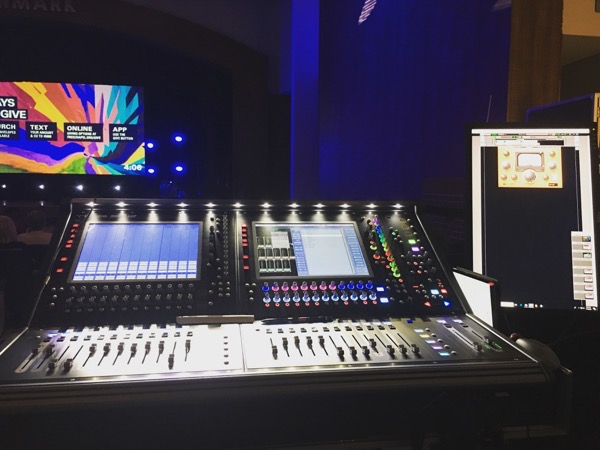
Bitten by Routine
I’ve found routines and systematic approaches in mixing can be helpful…until they’re not. Over the last several months I’ve been shifting my business a bit so I’m mostly traveling for on-site training and consulting work I do which has opened up some opportunities for me to do more local FOH mixing here in Atlanta so I’ve slowly been moving into some new churches.

The last couple of weeks, in particular, put me at Free Chapel’s Cumming campus which is one of their eight campuses. This particular campus meets in a high school theater making whole thing a bit nostalgic for me because my live sound adventure began doing production work for high school theater many years ago.
One of the big challenges for me starting up with a new church is adapting my workflow and routines especially on the console. Every church has their own unique setup especially when monitors get added to the FOH console which is the case this campus. While there are certain things such as console layout that I ideally need changed to fit my methods, I don’t want to reinvent the wheel. So I try and change a minimal amount of stuff when I’m in a new environment. The thing is I have certain routines and workflows in my head, and it’s easy to get bitten by those in this way.
In the case of my latest gig, the campus SD12’s default show file was a great starting point. One of the different things from what I usually encounter is every input had Waves inserts patched by default with the racks created in MultiRack and ready to go. This was actually a cool thing to see because what I usually encounter is a hodgepodge of inputs that have been patched to Waves in a seemingly random order along with some very interesting processing choices made in MultiRack I end up having to undo. In this case, the racks in MultiRack were mostly empty leaving a clean slate to start from which was wonderful for me as a mixer. Strangely, this was what bit me.
When I saw how great the initial setup was, I stopped thinking about every detail in the show file and started slipping into my routine mixing workflow. This was a mistake because in most cases the Inserts on the desk were bypassed to begin. In other words, the patch was ready to go but any processing on the MultiRack side was effectively bypassed to start. I’m not used to this, though, because I typically have to manually patch it all which turns on the inserts. So after I checked the important stuff in the show file this time such as vocal inputs, bass, and snare, I stopped thinking about it for other things where I don’t default to using outboard processing. Then it took me two weeks to catch my error.
Before the doors opened on my second week I was chatting with the worship pastor. I told him everything was starting to feel really good to me except for one thing: the kick drum. I try not to linger on kick drums much because they, honestly, aren’t as important to me as they are to some. However, after two weeks I still wasn’t satisfied with how it was sitting in the mix.
One thing I should mention is the workflow of the weekend isn’t the easiest in that it was a load-in, followed by a quick soundcheck and run-through. Then we do the service and immediately load-out. With that short of a turn around there’s a limit in how refined things are going to get, but given that I still wasn’t satisfied. The source drum sounded OK on stage, and the mics were in the right place. Dialing in the kick drum should have been a piece of cake for me which was why the whole thing was eating at me a bit.
So I’m standing there talking to the worship pastor, and he asks me a simple question, “Did you check to see if Waves is inserted?”
[Insert face palm.]
I’d feel bad about missing this, but years ago I watched a FOH engineer mixing a very high profile act make the same mistake during a show. So I’m a bit frustrated with myself, but at the same time I also know it wasn’t ruining the experience for anyone, and I still walked away from those days feeling good about where things got knowing where I’ll want to focus a little more time next time I’m behind their desk.
It just goes to show, though, that everyone misses things here and there, and it’s often the simple little things that can bite us. In this case my routine had me skipping over details I should have checked while I was prepping my show file offline. So if you’ve got routines that help you, that’s great, but be careful not to end up missing the stuff in your blindspot.




